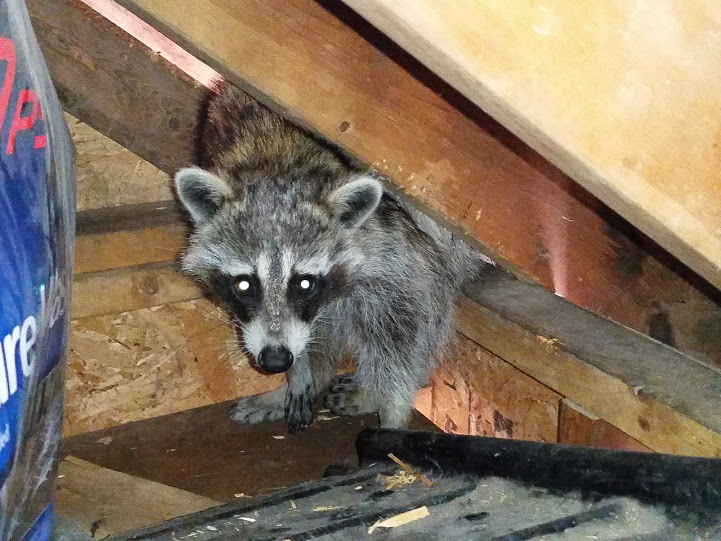While many people respect wildlife and enjoy watching it from afar, they do not want specific species invading their homes or yards. Raccoons are often unwelcome because they may be aggressive, can create messes, and cause a load of damage. Unfortunately, raccoons are a nocturnal species, meaning they come out at night when most people are inside or in bed. Because of their late-night prowling, many homeowners do not immediately realize they have a wildlife problem until something major happens. Instead of looking to professional raccoon removal services in Ajax for raccoon removal, many people study the fears of the animals, hoping to scare them away. Unfortunately, this approach may be ineffective and in some cases, dangerous.
Are Raccoons Afraid of Anything?
Using fear to deter a raccoon is often ineffective because raccoons are intelligent and strong creatures. They do not have many natural predators in urban settings, and those predators they have in rural areas are also likely not found on your property, like coyotes and bobcats. Raccoons may also be aggressive when cornered, meaning that their natural fear response may be to attack, which you do not want. It is best to deal with these intruders in a humane and safe way, without risking your well-being.
Property Defenders
Many people turn to two ways of protecting their property from raccoons: dogs and deterrent sprays. Large dogs can intimidate a raccoon, but that depends on the pet’s demeanor. A gentle dog may make a raccoon cautious, but it will not scare it away. An overly aggressive dog may frighten a raccoon, but that fear may manifest into a violent attack.
Garden centers and home improvement stores often sell deterrent sprays. Unfortunately, these sprays rarely, if ever, work very well. Raccoons may avoid an area for a few days, but they will return, especially if they have found food before.
Fear Versus Prevention
Essentially, the great fear debate comes down to effectiveness. Is fear more effective than prevention? No. While you can use your dog, a broom, hose, or pots and pans, a raccoon is just as likely to attack as it is to flee. Using proven preventative tactics is the best way to limit raccoon access or interest in your property. Here are eight things you can do to restrict access or interest in your property:
- Prevent nesting sites through keeping up with yard work and regular roof/property inspections
- Install flood and motion sensor lighting
- Put up a well-built fence
- Pick up loose nuts and fruit from trees
- Protect bird feeders
- Don’t leave pet food out
- Secure trash can lids
- Don’t feed raccoons
Signs of the Masked Intruder
Raccoons are not subtle intruders. You will know if you have a problem. Tipped over trash cans, disturbed compost pile, knocked over bird feeders, garden damage and spilled pet dishes are only a few of the more obvious signs of raccoons. You may also notice tracks through your yard, or droppings. While raccoons are stealthy, they can make a lot of noise, especially if they tip garbage cans when scavenging for food.
Wildlife Removal
While raccoons are cute, they are not always docile. Do not handle these animals yourself. Contact a wildlife removal company and provide them with details about your situation. Raccoons can attack if cornered, and because of their size and strength, they can cause significant harm. You must also keep in mind that wild animals can carry several diseases and illnesses. Always let a professional handle wildlife removal.
Raccoons are urban and rural scavengers. Their cute, fuzzy appearance can make them seem friendly and approachable, but like any other wild animal, they are unpredictable. Do not risk your safety, trying to feed or interact with these animals. If you have a raccoon problem, contact our Skedaddle Wildlife team in Ajax. We focus on humane wildlife removal and proven prevention tactics.



